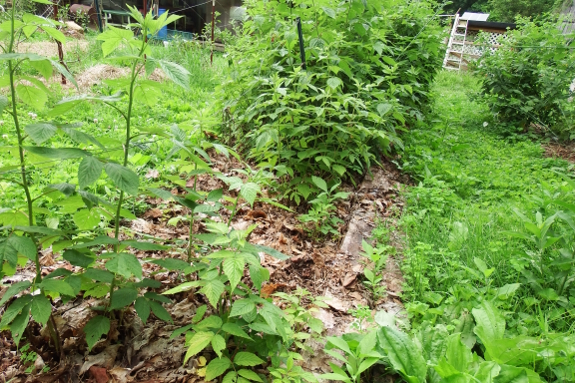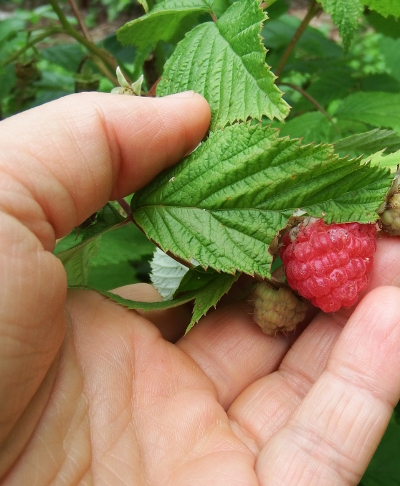
Raspberry patch expiration date

I never thought of
raspberry patches as coming with an expiration date,
but last year I realized that all good things must come to an end.
 Our
everbearing red raspberries started as a single freebie thrown in by
Raintree in 2007 when we ordered several fruit trees. Now, a full
decade later, that singleton has expanded
into two patches on our own farm plus several in the gardens of family
and friends...but the original planting is finally starting to lag. In
the photo at the top of this post, the dividing line between the
summer-bearing
raspberries (begun as one plant three years ago, background) and the
ever-bearing raspberries (ten years old, foreground) is startlingly
clear.
Our
everbearing red raspberries started as a single freebie thrown in by
Raintree in 2007 when we ordered several fruit trees. Now, a full
decade later, that singleton has expanded
into two patches on our own farm plus several in the gardens of family
and friends...but the original planting is finally starting to lag. In
the photo at the top of this post, the dividing line between the
summer-bearing
raspberries (begun as one plant three years ago, background) and the
ever-bearing raspberries (ten years old, foreground) is startlingly
clear.
Luckily, the solution is
neither difficult nor expensive. This fall, we'll buy another single
plant of an ever-bearing variety (or maybe several if I'm feeling like
a spendthrift) and we'll be rolling in spring and fall berries in no
time. So despite their expiration dates, ever-bearing raspberries
continue to make the cut as one of our easiest and most
dependable fruits.
Want more in-depth information? Browse through our books.
Or explore more posts by date or by subject.
About us: Anna Hess and Mark Hamilton spent over a decade living self-sufficiently in the mountains of Virginia before moving north to start over from scratch in the foothills of Ohio. They've experimented with permaculture, no-till gardening, trailersteading, home-based microbusinesses and much more, writing about their adventures in both blogs and books.
Want to be notified when new comments are posted on this page? Click on the RSS button after you add a comment to subscribe to the comment feed, or simply check the box beside "email replies to me" while writing your comment.

I've got raspberries from Raintree as well, about 8 years old (although I started a new bed in a better location from runner sprouts a couple years ago).
Are you saying that the plants peter out after a decade or so? Is the time reset by starting from new "runner" plants?
I understand strawberries are similar, that you need to keep restarting from runners, but do you need new genetic stock from the nursery at intervals (for either raspberries or strawberries)? If so, what are the nurseries doing differently? I doubt they are regrowing from seed....